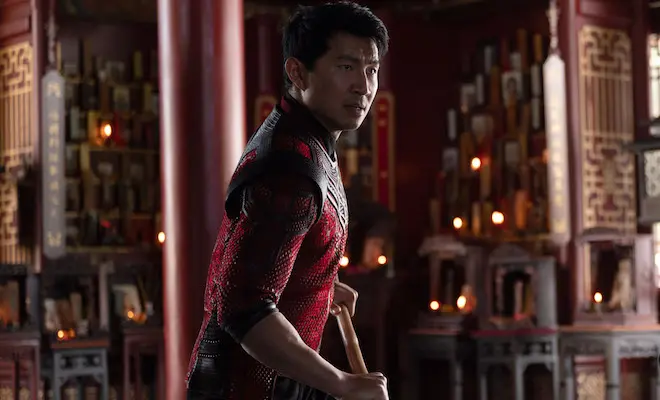 Depression-era bank robber John Dillinger (Johnny Depp) was a charismatic criminal who lived for the moment, and whose lightning raids on financial institutions across Middle America made him a top law enforcement target. By robbing only banks and not everyday people, Dillinger became a bit of a folk hero to much of the downtrodden masses. For a while, Dillinger appeared both unstoppable and untouchable. In the event that the cops did manage to arrest him, the cool crook would still find a way to break out of jail pretty quickly. Dillinger’s charm and audacious jailbreaks endeared him to almost everyone, including the coat-check girl who eventually became the love of his life, Billie Frechette (Marion Cotillard).
Depression-era bank robber John Dillinger (Johnny Depp) was a charismatic criminal who lived for the moment, and whose lightning raids on financial institutions across Middle America made him a top law enforcement target. By robbing only banks and not everyday people, Dillinger became a bit of a folk hero to much of the downtrodden masses. For a while, Dillinger appeared both unstoppable and untouchable. In the event that the cops did manage to arrest him, the cool crook would still find a way to break out of jail pretty quickly. Dillinger’s charm and audacious jailbreaks endeared him to almost everyone, including the coat-check girl who eventually became the love of his life, Billie Frechette (Marion Cotillard).
While JD’s adventures thrilled many, J. Edgar Hoover (Billy Crudup) was not one of his fans. However, Hoover hit on the idea of exploiting the outlaw’s capture as a way to elevate his fledgling Federal Bureau of Investigation. Making Dillinger America’s first Public Enemy Number One, J. Edgar put top agent Melvin Purvis (Christian Bale) in pursuit. Purvis’ initial efforts prove futile and, on occasion, fatal. Desperate to capture Dillinger, the driven G-Man decides to take matters into his own hands, importing a crew of Western ex-lawmen and orchestrating a few epic betrayals in order to put Dillinger behind bars.
Over the past three decades, 62-year old Chicago filmmaker Michael Mann has directed some pretty remarkable motion pictures, among them The Insider and The Last of the Mohicans. What Mann is perhaps best known for are the series of films that deal with individuals on both sides of the law: Thief, Manhunter, Heat, Collateral, and to a slightly lesser extent, Miami Vice. By placing as much emphasis on character, technical details, procedure and plot as he did style and action, Mann has delivered adult thrillers that were both exciting and intelligent.
Public Enemies is Mann’s latest crime genre entry, an epic that is fast-paced, well-acted and details-wise, very authentic. Nathan Crowley’s production design, Elliot Goldenthal’s music score and Colleen Atwood’s costumes contribute in helping Mann faithfully recreate the minutia of 1930s Middle America, captured to varying degrees of success by Dante Spinotti’s HD cinematography. Spinotti is a remarkable cinematographer, but there is only so much any director of photography can do with the High Definition format. For every section that looks good in the film, namely the nighttime sequences, there is one lurking around the corner that looks like a $100 million YouTube video. Even after several years of use, these cameras are still not ready for prime time.
For all the technical brilliance on display here, there is something amiss: a competent, developed screenplay. Written by Ronan Bennett, Ann Biderman and Mann, the screenplay adaptation of Bryan Burrough’s novel is dramatically inert and somewhat uneven. Public Enemies desperately wants to be a Depression-era version of Heat. Unfortunately, it lacks the narrative foundation needed to do so. The characters lack depth, the story lacks structure, there is no dramatic buildup or tension, and the screen time between the two lead characters is far too lopsided to create an interesting dynamic. Time is devoted to both Dillinger and Purvis (more Dillinger than Purvis) in the first half, yet we learn precious little about either’s background or history. The script also fails to set these two individuals on any sort of collision course in a way similar to the coffee shop meeting between Al Pacino and Robert De Niro in Heat. When Dillinger and Purvis do have their initial encounter, the payoff is remarkably muted. The same goes for the big showdown at the end. Like many events in Public Enemies, it just… happens. If Mann could infuse Miami Vice with depth, buildup and payoff, he certainly could have made it happen here.
Despite having little to work with, the cast acquit themselves nicely. Depp is a fine Dillinger, displaying cockiness and confidence in equal measures be it robbing banks, walking through a police station unnoticed (the best scene of the film) or winning over Cotillard’s Lady in Red. Speaking of Cotillard, the beautiful Oscar-winner makes do with what is essentially a bimbo role. The romantic scenes between Dillinger and Frechette should be hot given the actors, but those come off lukewarm at best. Bale’s turn as Purvis is acceptable but unspectacular given his limited screen time and even more limited character development in the script. Supporting players Crudup and Stephen Lang fare much better as Hoover and former Western lawman Charles Winstead, respectively.
Despite the talent on display in front of and behind the camera, Public Enemies is a hit and miss affair. The Michael Mann we know and love is present thanks to the technical virtuosity and nicely-staged gunfights. But the Michael Mann who can merge those with a script and make the film fly is not. Public Enemies is not a total loss, not by a long shot. Then again, it is not a roaring success either. It is somewhere in the middle, which is a fine place for most filmmakers to be, but not Mann. He has been, and will continue to be, a better filmmaker than that.
-Shawn Fitzgerald


